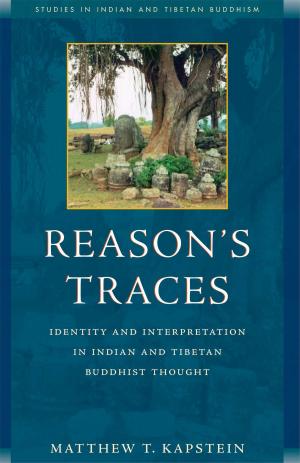Karma, Nirvana and Reincarnation in Buddhism and Hinduism.
Nonfiction, Religion & Spirituality, Eastern Religions, Hinduism, Buddhism| Author: | L. De La Vallée Poussin | ISBN: | 9786050366761 |
| Publisher: | L. De La Vallée Poussin | Publication: | March 21, 2015 |
| Imprint: | Language: | English |
| Author: | L. De La Vallée Poussin |
| ISBN: | 9786050366761 |
| Publisher: | L. De La Vallée Poussin |
| Publication: | March 21, 2015 |
| Imprint: | |
| Language: | English |
The primitive meaning of this celebrated word, Nirvāṇa, seems to be twofold: on the one hand, 'becoming cool, cooling'; on the other hand, 'blowing out,' 'extinguishing.' There is a nirvāṇa of a man who is thirsty as well as of a candle.
Hence two directions in the evolution of the religious or philosophical meaning of the word. Cooling, refreshment, the refreshment of a man who is suffering, the cooling of a man who is hot with desire, comfort, peace, serenity, bliss. Also extinction, detachment or extinction of the fire of the passions, negative bliss or extinction of suffering, annihilation or extinction of individual existence.
Each metaphor is apt to convey two distinct ideas.
On the one hand, Nirvāṇa is Sanctity (arhattva). For a Saint (arhat) has become cold (śītībhūta), as he is no more burned by the fire of passions, and he has extinguished this fire.
On the other hand, Nirvāṇa is the ultimate end of a man, the state of a Saint after death.
For Nirvāṇa may be cooling of suffering—an eternal refreshment—or extinction of existence.
The primitive meaning of this celebrated word, Nirvāṇa, seems to be twofold: on the one hand, 'becoming cool, cooling'; on the other hand, 'blowing out,' 'extinguishing.' There is a nirvāṇa of a man who is thirsty as well as of a candle.
Hence two directions in the evolution of the religious or philosophical meaning of the word. Cooling, refreshment, the refreshment of a man who is suffering, the cooling of a man who is hot with desire, comfort, peace, serenity, bliss. Also extinction, detachment or extinction of the fire of the passions, negative bliss or extinction of suffering, annihilation or extinction of individual existence.
Each metaphor is apt to convey two distinct ideas.
On the one hand, Nirvāṇa is Sanctity (arhattva). For a Saint (arhat) has become cold (śītībhūta), as he is no more burned by the fire of passions, and he has extinguished this fire.
On the other hand, Nirvāṇa is the ultimate end of a man, the state of a Saint after death.
For Nirvāṇa may be cooling of suffering—an eternal refreshment—or extinction of existence.















